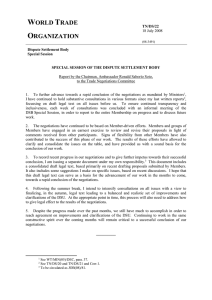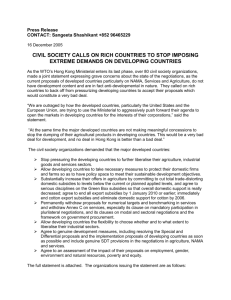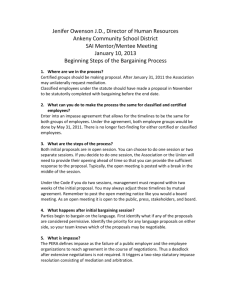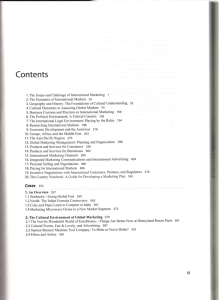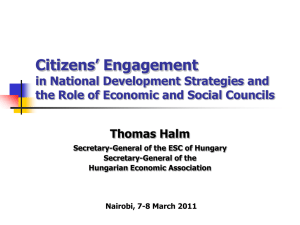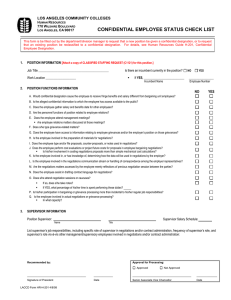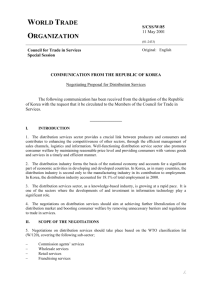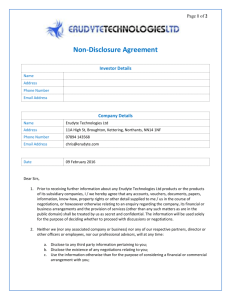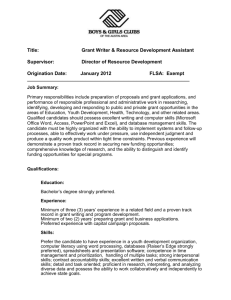Collective Bargaining Tips
advertisement
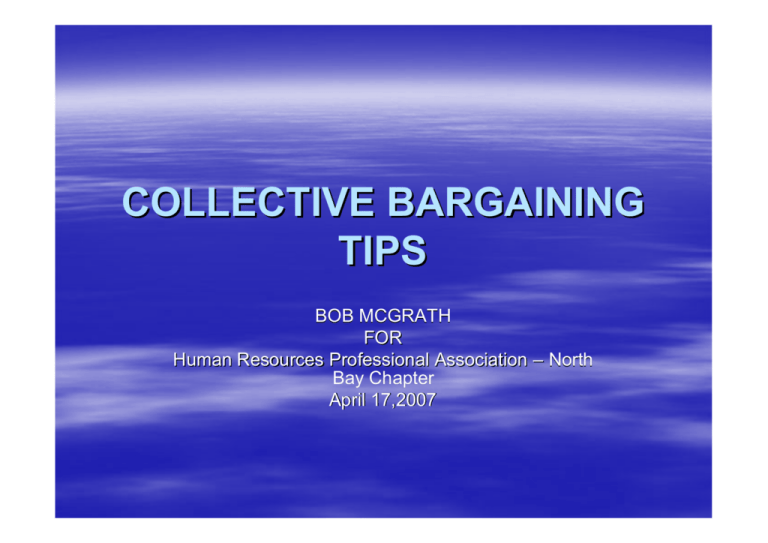
COLLECTIVE BARGAINING TIPS BOB MCGRATH FOR Human Resources Professional Association – North Bay Chapter April 17,2007 PRE-NEGOTIATIONS Prepare/Prepare/Prepare Starts as soon as you sign a renewal agreement PREPARATION INTERNAL Keep records Keep track of grievances/complaints Note ambiguities Union rhetoric Pole your constituents Employer Policies PREPARATION EXTERNAL General economic conditions Wage settlements in the industry Developing trends/legislation (mandatory retirement/pension /minimum wage) “Ask A Friend” Conduct surveys NEGOTIATING TEAM WHO? Needed Expertise Anticipated Proposals Labour Relations Finance Operations Research CEO Role EDUCATE The issues Roles Process MANDATE Know your limits DEVELOP PROPOSALS Realistic Trades Documentation Demonstrated Need Reflect Work Force Makeup Cost NEGOTIATIONS Getting Started Introduction/Roles Posturing Behaviour Control NEGOTIATIONS Exchange Proposals NEGOTIATIONS Explain Proposals Why Need Problems Documentation NEGOTIATIONS Sign-off on agreed items as you go NEGOTIATIONS Come back prepared on subsequent days. NEGOTIATIONS NOTES! NOTES! NOTES! STRATEGY Maximum and Minimum Objectives Reveal - Little by little maximum expectation Conceal - For as long as possible the minimum position STRATEGY Monetary vs Non-monetary Argue Demands Resist Demands Compromise Don’t be in a hurray to settle You snooze you lose Exploring the Possibilities - getting the maximum without economic risk or risk of strike/lockout Final Offer RULES TO LIVE BY Never promise what you can’t deliver What you give you never get back . Management Rights Don’t show-up your opponent Allow for face saving Never box the other side in TRANSITION FROM OLD TO NEW “Its much easier to build a good relationship than to struggle with a bad one” TRANSITION Moving From Traditional Roles To A New Vision – – – – Mix of Union and Management Compromise Realistic Proposals Consider all possibilities TRANSITION OLD CONCEPT . CONTROL . CONFRONT . CONQUER NEW VISION . COOPERATE . COLLABORATE . COMPROMISE
